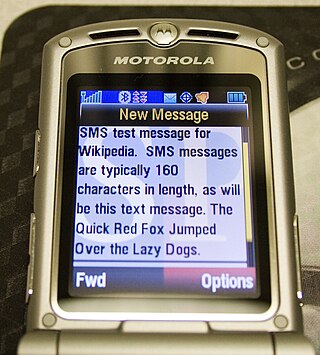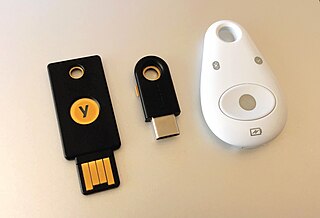A mobile messaging operator is a specialized form of mobile network operator that provides mobile messaging services such as SMS or Multimedia Messaging Service to businesses or other mobile operators.
A mobile messaging operator is a specialized form of mobile network operator that provides mobile messaging services such as SMS or Multimedia Messaging Service to businesses or other mobile operators.
There are two types of mobile messaging operators, aggregators and SS7 (Signaling System 7) providers.
The aggregator model involves the mobile messaging operator signing multiple individual agreements with mobile operators to facilitate two-way SMS traffic through that operator's SMSC (Short Message Service Center). SMS messages are delivered to the operator's SMSC, but not the subscriber's handset; the SMSC takes care of further handling of the message through the SS7 network.
The SS7 model enables mobile messaging operators to route data directly through the SS7 system, giving the provider greater control and visibility of the transmission path during SMS routing. In this way, SMS messages can be sent directly to and from recipients without having to go through the SMSCs of other mobile operators.
Some mobile messaging operators also operate a mixed model, combining SS7 and aggregated connectivity.
Mobile messaging operators can provide businesses or other mobile operators with a range of messaging services, including:

Short Message/Messaging Service, commonly abbreviated as SMS, is a text messaging service component of most telephone, Internet and mobile device systems. It uses standardized communication protocols that let mobile devices exchange short text messages. An intermediary service can facilitate a text-to-voice conversion to be sent to landlines.
Signalling System No. 7 (SS7) is a set of telephony signaling protocols developed in the 1970s, which is used to set up and tear down telephone calls in most parts of the world-wide public switched telephone network (PSTN). The protocol also performs number translation, local number portability, prepaid billing, Short Message Service (SMS), and other services.

Mobile payment, also referred to as mobile money, mobile money transfer and mobile wallet, is any of various payment processing services operated under financial regulations and performed from or via a mobile device. Instead of paying with cash, cheque, or credit card, a consumer can use a payment app on a mobile device to pay for a wide range of services and digital or hard goods. Although the concept of using non-coin-based currency systems has a long history, it is only in the 21st century that the technology to support such systems has become widely available.
Multimedia Messaging Service (MMS) is a standard way to send messages that include multimedia content to and from a mobile phone over a cellular network. Users and providers may refer to such a message as a PXT, a picture message, or a multimedia message. The MMS standard extends the core SMS capability, allowing the exchange of text messages greater than 160 characters in length. Unlike text-only SMS, MMS can deliver a variety of media, including up to forty seconds of video, one image, a slideshow of multiple images, or audio.

Text messaging, or texting, is the act of composing and sending electronic messages, typically consisting of alphabetic and numeric characters, between two or more users of mobile devices, desktops/laptops, or another type of compatible computer. Text messages may be sent over a cellular network or may also be sent via satellite or Internet connection.
Network switching subsystem (NSS) is the component of a GSM system that carries out call out and mobility management functions for mobile phones roaming on the network of base stations. It is owned and deployed by mobile phone operators and allows mobile devices to communicate with each other and telephones in the wider public switched telephone network (PSTN). The architecture contains specific features and functions which are needed because the phones are not fixed in one location.
External Short Messaging Entity (ESME) is an external application that connects to a Short Message Service Center (SMSC) to engage in the sending or receiving of SMS messages. The term was coined by Aldiscon.
GSM services are a standard collection of applications and features available over the Global System for Mobile Communications (GSM) to mobile phone subscribers all over the world. The GSM standards are defined by the 3GPP collaboration and implemented in hardware and software by equipment manufacturers and mobile phone operators. The common standard makes it possible to use the same phones with different companies' services, or even roam into different countries. GSM is the world's most dominant mobile phone standard.
A value-added service (VAS) is a popular telecommunications industry term for non-core services, or, in short, all services beyond standard voice calls and fax transmissions. However, it can be used in any service industry, for services available at little or no cost, to promote their primary business. In the telecommunications industry, on a conceptual level, value-added services add value to the standard service offering, spurring subscribers to use their phone more and allowing the operator to drive up their average revenue per user. For mobile phones, technologies like SMS, MMS and data access were historically usually considered value-added services, but in recent years SMS, MMS and data access have more and more become core services, and VAS therefore has begun to exclude those services.
A Short Message Service Center (SMSC) is a network element in the mobile telephone network. Its purpose is to store, forward, convert and deliver Short Message Service (SMS) messages.
The Mobile Application Part (MAP) is an SS7 protocol that provides an application layer for the various nodes in GSM and UMTS mobile core networks and GPRS core networks to communicate with each other in order to provide services to users. The Mobile Application Part is the application-layer protocol used to access the Home Location Register, Visitor Location Register, Mobile Switching Center, Equipment Identity Register, Authentication Centre, Short message service center and Serving GPRS Support Node (SGSN).
SMS spoofing is a technology which uses the short message service (SMS), available on most mobile phones and personal digital assistants, to set who the message appears to come from by replacing the originating mobile number with alphanumeric text. Spoofing has both legitimate uses and illegitimate uses. This can also send "mysterious" messages that look like they are from legitimate numbers or contacts.
Short codes, or short numbers, are short digit-sequences - significantly shorter than telephone numbers - that are used to address messages in the Multimedia Messaging System (MMS) and short message service (SMS) systems of mobile network operators. In addition to messaging, they may be used in abbreviated dialing.
Mobile marketing is a multi-channel online marketing technique focused at reaching a specific audience on their smartphones, feature phones, tablets, or any other related devices through websites, e-mail, SMS and MMS, social media, or mobile applications. Mobile marketing can provide customers with time and location sensitive, personalized information that promotes goods, services, appointment reminders and ideas. In a more theoretical manner, academic Andreas Kaplan defines mobile marketing as "any marketing activity conducted through a ubiquitous network to which consumers are constantly connected using a personal mobile device".
An SMS gateway or MMS gateway allows a computer to send or receive text messages in the form of Short Message Service (SMS) or Multimedia Messaging Service (MMS) transmissions between local and/or international telecommunications networks. In most cases, SMS and MMS are eventually routed to a mobile phone through a wireless carrier. SMS gateways are commonly used as a method for person-to-person to device-to-person communications. Many SMS gateways support content and media conversions from email, push, voice, and other formats.
Mobile local search is a technology that lets people search for local things using mobile equipment such as mobile phones, PDAs, and other mobile devices. Mobile local search satisfies the need to offer a mobile subscriber spontaneous access to near-position services and information such as businesses, products, events, restaurant, movie theatre or other local information. Mobile local search is the search and discovery of persons, places, and things within an identifiable space defined by distinct parameters. These parameters are evolving. Today they include social networks, individuals, cities, neighborhoods, landmarks, and actions that are relevant to the searcher's past, current, and future location. These parameters provide structure to vertically deep and horizontally broad data categories that can stand-alone or are combined to comprise searchable directories.
A long number, also known as a virtual mobile number (VMN), dedicated phone numberMSISDN or long code, is a reception mechanism used by businesses to receive SMS messages and voice calls. As well as being internationally available, long numbers enable businesses to have their own number, rather than short codes which are generally shared across a lot of brands. Long numbers allows a wide range of industries to generate large amounts of mobile-originated SMS from the subscribers, such as wireless application service providers, mobile virtual network operators, mobile virtual network enablers, SMS aggregators, e-sellers, advertising agencies, media channels and mobile infrastructure providers.
Acision was a privately held British mobile communications network infrastructure company engaged in messaging and charging systems that enable popular services such as Short message service (SMS), Multimedia Messaging Service (MMS), mobile internet browsing, mobile broadband, and voicemail. In particular, Acision specialised in providing IP messaging to over-the-top media services and other enterprises.

Multi-factor authentication is an electronic authentication method in which a user is granted access to a website or application only after successfully presenting two or more pieces of evidence to an authentication mechanism. MFA protects personal data—which may include personal identification or financial assets—from being accessed by an unauthorized third party that may have been able to discover, for example, a single password.

Sinch, formerly CLX Communications, is a communications platform as a service (CPaaS) company which powers messaging, voice, and email communications between businesses and their customers. Headquartered in Stockholm, Sweden, the company employs over 4000 people in more than 60 countries.